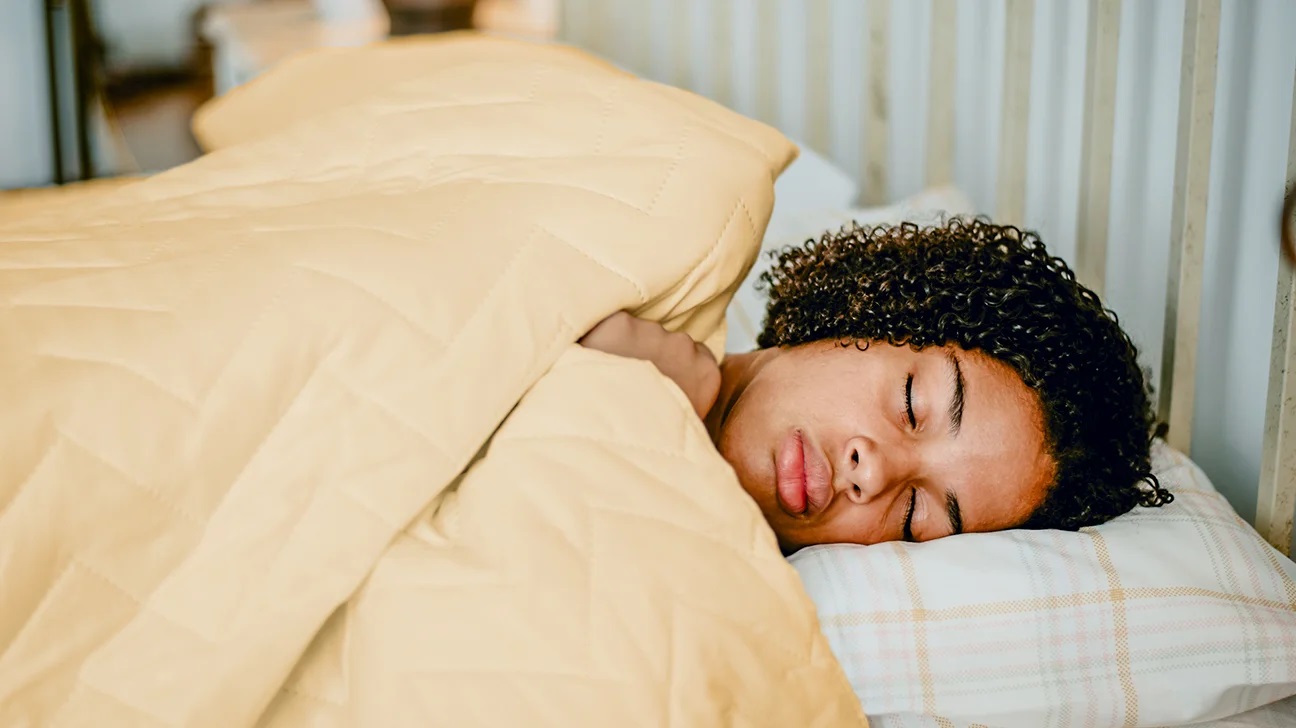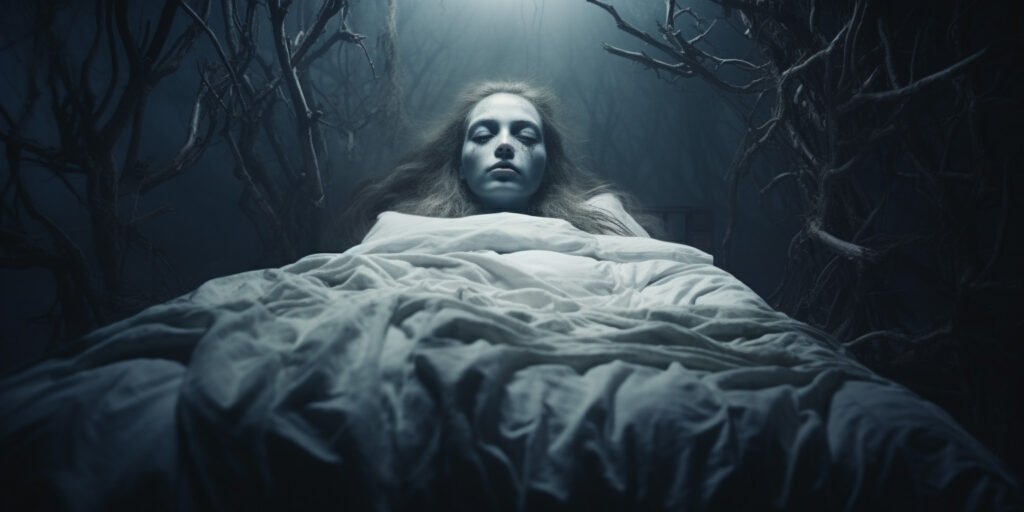Spooky Sleep Facts: Don't Sleep On These Nightmares!
Has your slumber been a bit too tranquil lately? Are you yearning for a frisson of fear to spice up your nights? Prepare to have your perception of dreamland irrevocably altered because the science of sleep hides some truly chilling secrets.
Venturing into the realm of sleep isn't always a smooth sail into tranquility. While the prospect of rest and rejuvenation is alluring, the reality can be far more complex, marked by unsettling phenomena that challenge our understanding of the subconscious. From peculiar sleep disorders to the eerie occurrences that unfold while we're in a state of unconsciousness, the world of sleep harbors a multitude of unsettling facts.
| Category | Details |
|---|---|
| Common Sleep Disorders | Sleep Paralysis, Nightmares, Sleepwalking, Sleep Eating (SRED), Sexsomnia, Night Terrors |
| Prevalence | Sleep disorders disrupt the lives of millions. Sleep paralysis affects a significant percentage of the population. Nightmares are very common. |
| Associated Symptoms | Difficulty breathing, hearing noises (including whispers), sense of other presences in the room, intense fear, feeling of pressure on the chest, vivid and disturbing dreams, sleep-related eating and sexual behavior, sleepwalking. |
| Triggers/Risk Factors | Irregular sleep schedules, stress, anxiety, specific foods before bed, sleep deprivation, certain medications, genetics. |
| Impact | Intense fear, feelings of helplessness, disruption of sleep quality, daytime fatigue, anxiety, potential for injury or dangerous actions during sleep. |
| Age of Best Sleep | The best sleep occurs between ages eight to ten, after that sleep quality declines. |
| Impact of Sleep Deprivation | Alarming consequences like hallucinations, impaired cognitive function, increased risk of accidents, mood swings, and long-term health problems. |
| Interesting Facts | Humans spend about of their lives sleeping. People who sleep between 6.5 hours a night live the longest. Sleep is universal among complex organisms. Sleep eating and sleep sex are real disorders. |
| External Resources | The Sleep Foundation |
Sleep paralysis, that unsettling experience where consciousness and immobility collide, is a prime example. Imagine falling asleep or waking up, only to find yourself trapped within your own body, unable to move or speak. It's a terrifying sensation, and one that many people experience at some point in their lives.
Consider the nightmares, those vivid and disturbing dreams that can jolt us awake in a cold sweat. Sometimes, these nightmares are mere bad dreams, but other times, they combine with sleep paralysis, amplifying the fear and creating a truly harrowing experience. The feeling of a presence in the room, the difficulty breathing, the whispers in the dark these are the hallmarks of a truly frightening sleep experience.
Then there are the bizarre occurrences, the things that happen while we're seemingly out of touch with reality. Sleepwalking, a relatively well-known phenomenon, can lead to people taking actions they would never consider while awake, potentially putting themselves in harm's way. Sleep eating, or SRED, is another disconcerting behavior, where individuals consume food while asleep, often with no memory of the event.
The truth is, even if you meticulously adhere to a regular sleep schedule, getting those recommended eight hours of sleep each night, the experience won't always be pleasant. The realm of sleep holds many mysteries, and some of them are downright unsettling.
Did you know that humans spend approximately one-third of their lives asleep? That's a significant chunk of our existence, yet the intricacies of sleep are still being unraveled by scientists. Studies reveal that individuals who consistently sleep between 6.5 to 7.5 hours per night tend to live the longest. Sleep is a universal characteristic among complex living organisms, observed in creatures ranging from insects to mammals.
These spooky truths about sleep, encompassing mysterious disorders and the unsettling consequences of sleep deprivation, can disrupt the lives of millions in the U.S. alone. The consequences can be alarming, underscoring the importance of prioritizing a good night's sleep.
What we consume before bed can significantly influence our dreams, potentially resulting in nightmares or unusually bizarre dream scenarios. The brain goes through five distinct sleep stages, and it's during REM (Rapid Eye Movement) sleep that we experience dreams.
Nightmares, of course, are a staple in any discussion of scary sleep facts. The intensity of the experience increases when nightmares intersect with sleep paralysis, leaving you aware of your surroundings but paralyzed, generating a truly frightening experience.
If you've ever felt deeply frightened after sleeping late or pulling an all-nighter, you are not alone. Many awaken feeling terrible after poor sleep, while others feel the creepiness of being alone when everyone else in the house is asleep.
The intriguing investigation into sleepwalking, "Dreamland: Adventures in the Strange Science of Sleep," highlights the unusual nature of sleep-related occurrences.
Sleep paralysis is frequently accompanied by disturbing symptoms. Difficulty breathing, hearing noises (including whispers), and a sense of other presences in the room are all common experiences.
While typically harmless, sleep paralysis can trigger profound fear. The key is establishing a consistent sleep schedule and finding effective strategies for stress management to mitigate the likelihood of experiencing sleep paralysis.
Involuntary eating during sleep, known as SRED, is a real phenomenon. It's not as frequent as sleepwalking, but it involves consuming food unconsciously.
The golden years for optimal sleep are between ages eight and ten. After that, sleep quality declines, with profound effects as we age.
Sleep sex, also called sexsomnia, is a sleep disorder similar to sleepwalking, but instead of walking, a person engages in sexual behavior like masturbation or intercourse while asleep.
Many sufferers of sleep paralysis report a sensation of heavy pressure on the chest, often described as crushing.
One of the creepy facts about sleep is the occurrence of night terrors. These are not your run-of-the-mill bad dreams. They are often accompanied by screaming, thrashing, and intense fear.
Humans are not the only creatures that sleep. All animals need sleep, from the smallest insects to the largest mammals. Some animals even sleep with only half of their brain at a time, such as dolphins.
The use of sleeping pills in the U.S. continues to rise, with one in four Americans taking some form of medication each year to aid in sleep, according to the National Sleep Foundation.
While it's natural to view sleep as a time for rest and relaxation after a challenging day, your body is surprisingly active while you're asleep. How the body regenerates during sleep is miraculous and fascinating, but it doesn't make it any less bizarre.
Article Recommendations
- Carlos Salinas De Gortari Net Worth 2024
- Sara Lownds
- Dylan Dreyer Announcement Today
- John Nettles Heart Attack
- Ruks Khandagle Uncut



Detail Author:
- Name : Caroline Price
- Username : frederick48
- Email : wkoss@yahoo.com
- Birthdate : 2005-03-31
- Address : 99212 Denesik Junction Suite 336 Port Loraine, RI 00959-6635
- Phone : 769-356-3492
- Company : Douglas-Ernser
- Job : Spotters
- Bio : Illo culpa inventore et et. Culpa aut quis quia laboriosam commodi quo a. Non consectetur libero non dolor et. In reiciendis blanditiis doloribus consequatur. Esse similique atque nemo et.
Socials
facebook:
- url : https://facebook.com/mleffler
- username : mleffler
- bio : Quia culpa voluptate ratione sunt mollitia consequatur.
- followers : 3401
- following : 2226
twitter:
- url : https://twitter.com/meredith8203
- username : meredith8203
- bio : Aliquid dolore pariatur fugiat atque nihil. Eum ipsa quia ut maiores rerum nobis voluptatem. Voluptatibus ut dignissimos voluptatem voluptatum.
- followers : 5299
- following : 2389
instagram:
- url : https://instagram.com/mleffler
- username : mleffler
- bio : Repellat eligendi voluptas eius. Nihil quibusdam dolore ipsum asperiores molestias quae quis.
- followers : 3688
- following : 2665